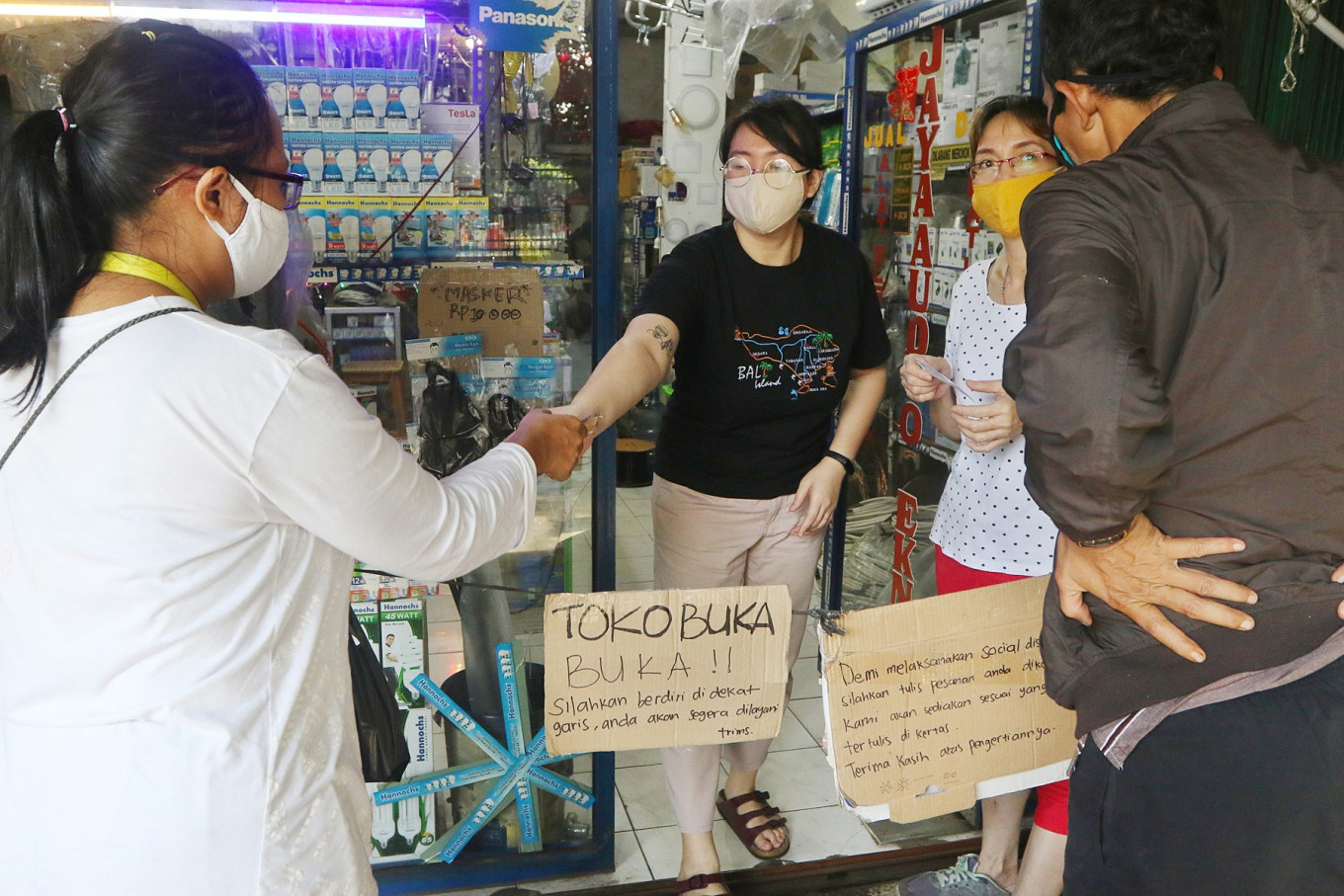Popular Reads
Top Results
Can't find what you're looking for?
View all search resultsPopular Reads
Top Results
Can't find what you're looking for?
View all search resultsPrivate sector urges govt to lay out post-COVID-19 economic strategy
Former maritime affairs and fisheries minister Susi Pudjiastuti says that, without proper and clear guidelines, the so-called new normal period would only cause more uncertainty for enterprises.
Change text size
Gift Premium Articles
to Anyone
B
usinesspeople in the country are waiting for the government to announce a new economic strategy and guidelines amid its policy to relax COVID-19-related restrictions.
Without such guidelines, the so-called new normal period would only leave enterprises with more uncertainty, said businesswoman and former maritime affairs and fisheries minister Susi Pudjiastuti.
“It’s business as usual in our country. [Businesses] have not been operating due to the outbreak, but the government keeps collecting non-tax revenues,” she said in a discussion held by the national COVID-19 task force on Friday.
Susi, who owns various businesses, including an airline named after herself, Susi Air, said all non-cargo flights had been suspended in the past two months, causing the company to receive zero income. Yet, the company still needed to pay for various clearances, such as security clearance upon entering airports, plane ownership documents and pilot permits.
“The government should suspend such obligations for businesspeople to pay non-tax receipts during the pandemic,” said Susi.
Read also: Indonesian economy could shrink 3.9 percent if hit by second COVID-19 wave, OECD warns
The Jakarta Post senior editor Endy Bayuni, also a speaker at the discussion, said the government had yet to lay out a clear strategy for restoring the economy. Meanwhile, the government had eased restrictions although the country still saw new COVID-19 cases.
“The government keeps pushing for the new normal; yet it has not come up with any new strategy regarding which direction our economy is heading in,” said Endy, who is also a member of the Facebook Oversight Board.
He added that a new economic strategy for job creation was necessary. “What I see is the opposite: The government seems to focus on tourism, which could hardly be revived in one or two years.”
Endy cited the example of the European Union, which invested 875 billion euros (US$983.5 billion) to rebuild factories and reduce dependency on Chinese products.
“They also aim for a green economy. The direction is clear; the private sector can then follow the rhythm of the government’s strategy,” he said.
Noting that the role of the private sector had been reduced in the past years, Endy said the government should talk with private sector actors in tackling economic challenges after the pandemic.
“Maybe it’s time for the government to restore confidence in the private sector and work together to build the economy for the people.”










